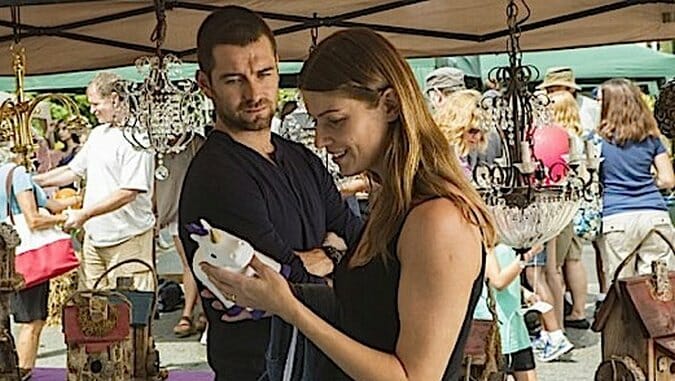Banshee: “The Truth About Unicorns” (Episode 2.05)

I wanted to acknowledge something straight off here: a couple of weeks ago, Banshee executive producer Greg Yaitanes called me out on Twitter. His comment on January 27th read, “I love that this guy @bob_ham from @PasteMagazine HATES #Banshee and yet can’t stop watching.” As you can imagine, fans of the show quickly rushed to its defense—and pointed out an egregious spelling error I made in the review he linked to—making my online life, for a least a day or two, much less fun than it should be.
I bring this up prior to this write-up because, as you’ll likely have seen from the score attached to it, I really enjoyed this week’s episode. And if you’ve read my previous reviews of Banshee, you’ll know what a surprise that actually was for me. So, I wanted to acknowledge what occurred two weeks back as a way to assert my objectivity. My excitement and appreciation has nothing to do with the back and forth that went down twixt Yaitanes, Banshee supporters and myself. I’m not trying to save face here. I still have some serious issues with this show and suspect this episode is an outlier. But it also left me with a nagging feeling that I may be underestimating it.
What brought that sense to life was an extended coda, a sequence that had me rolling my eyes and wondering why they were dragging out the end of another fine episode. The five-minute sequence was a long montage of slow-motion shots of Anna, freshly released from prison and looking pensive and fearful, and her daughter Deva having a small reflective moment. Over it all, a treacly, mid-tempo indie ballad dribbled along underneath a monologue from Sugar that was an extended metaphor about the prisons that we put ourselves in.
Then, with one fell swoop—Lucas slamming his fist down on an unseen CD player, stopping the music, and declaring of Sugar’s monologue, “Fuck that”—it revealed itself to be a parody of that worn-out trope. It left me laughing and reeling and wondering, “Has Banshee been a sly lampooning of puffed up cable dramas this whole time?”
-

-

-

-

-

-

-

-

-

-

-

-

-

-

-

-

-

-

-

-

-

-

-

-

-

-

-

-

-

-

-

-

-

-

-

-

-

-

-

-








































